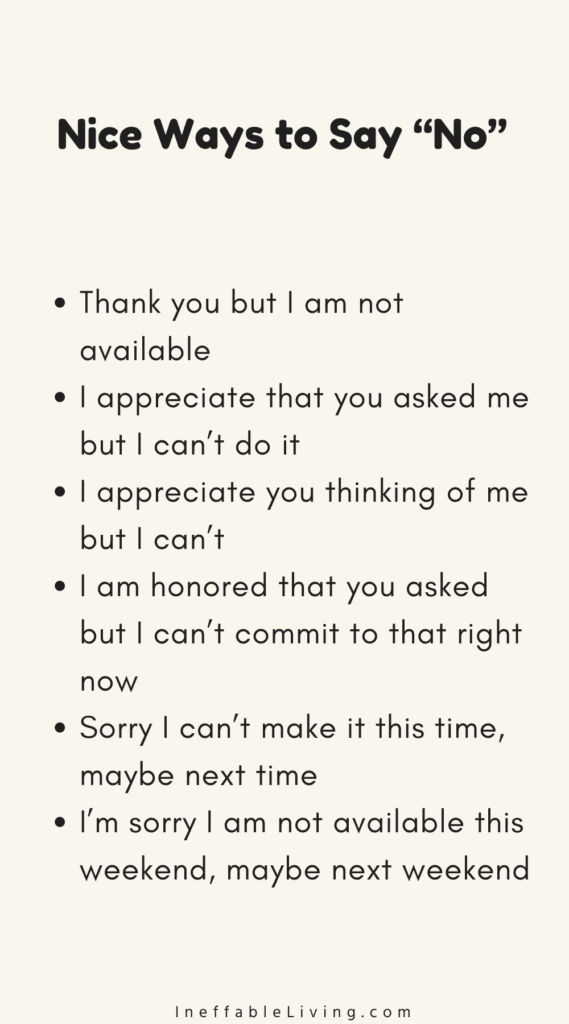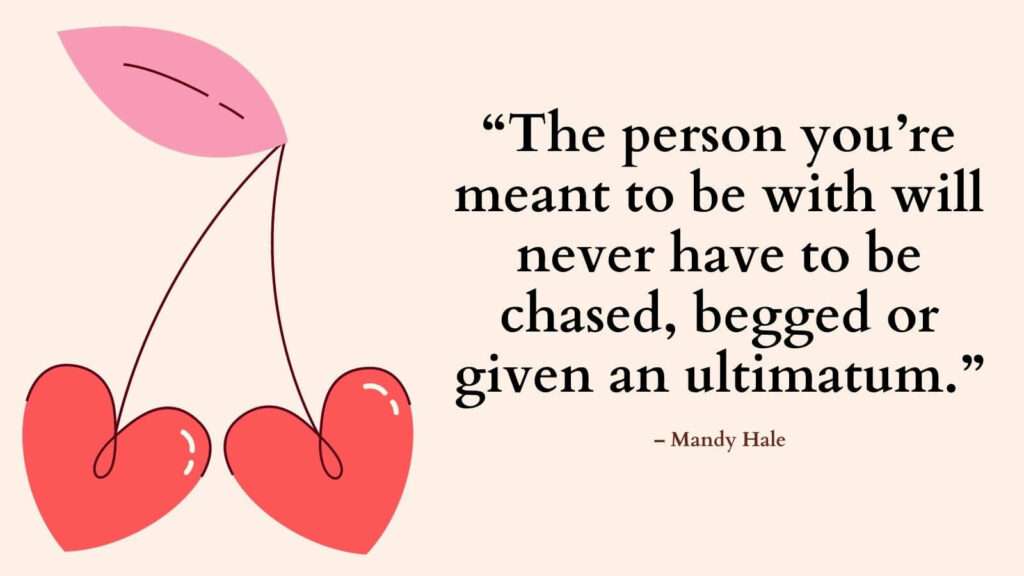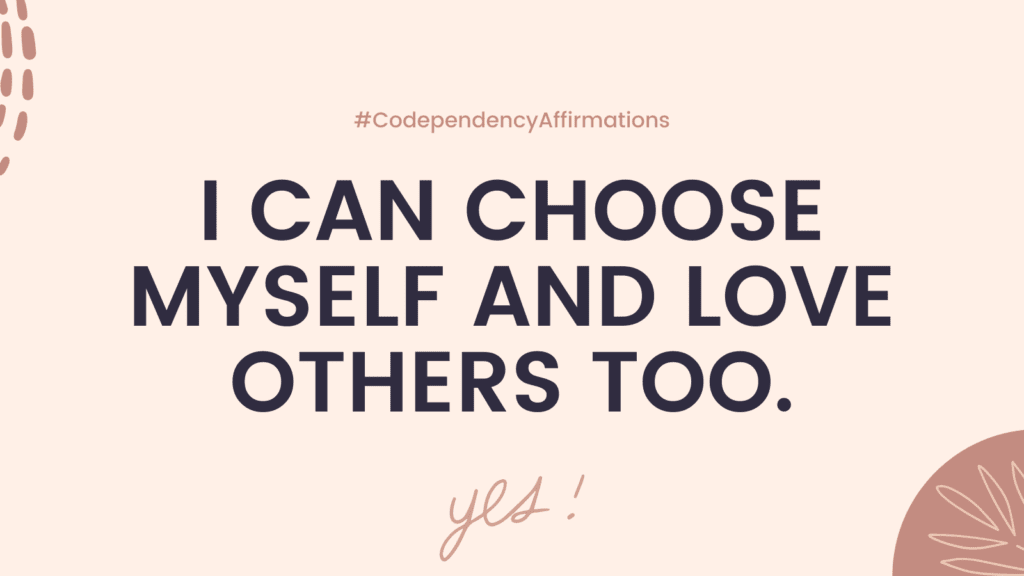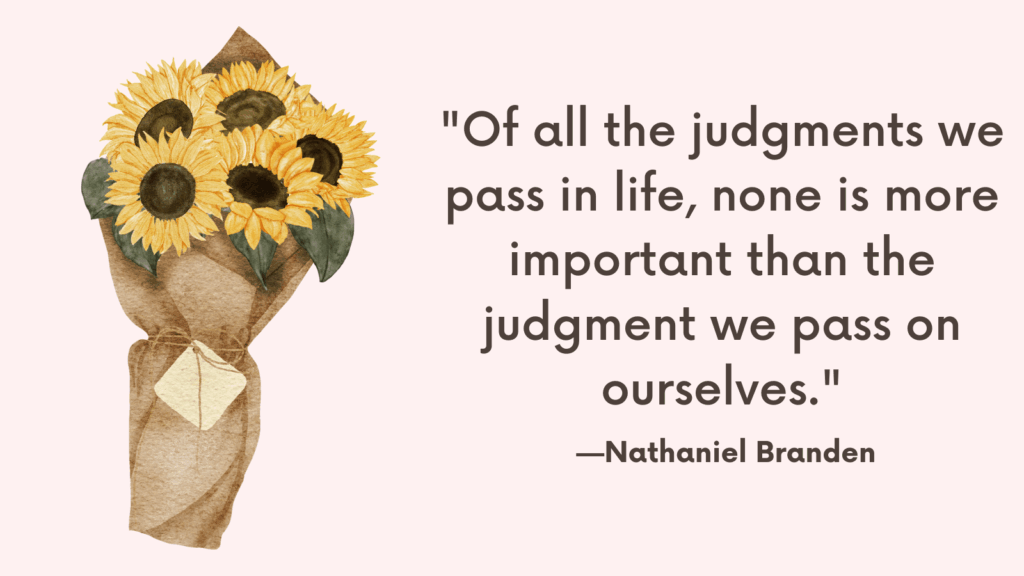Can a codependent relationship be saved? Read on to find out.
What Is a Codependent Relationship?
A codependent relationship is a dysfunctional relationship where the codependent is a caretaker who needs to be needed, and the other person takes advantage.
Codependents and emotional manipulators have always been irresistibly drawn together into dysfunctional relationships.
The relationship begins as a seductive dreamlike state, only to unfold later into a mixed state of love, pain, hope, and disappointment.
Your “perfect” lover transforms into someone you barely recognize.
Their once attractive, alluring traits are replaced by self-centered and selfish demeanor.
The relationship is likely short-lived and highly disappointing.
Related: Codependency And Enmeshment: 9 Signs You May Be In An Enmeshed Relationship
Self-Orientation Continuum
We all fit somewhere on the continuum of self-orientation.
Self-orientation is defined as the manner in which we love and care for ourselves and other people in a relationship.
When we are more concerned with the needs of others, while placing little importance on our needs, we have an “others” self-orientation.
On the other hand, we have a “self” self-orientation when we place more importance on having our own needs fulfilled, while ignoring the needs of other people.
Codependency and emotional manipulation disorders are two opposite personality types that exist on the extremes of the self-orientation continuum.
Related: Caregiving vs Caretaking (The Savior Complex)
Emotional Manipulation
Emotional manipulators (someone who is diagnosed with: Narcissistic Personality Disorder (NPD), Borderline Personality Disorder (BPD), Antisocial Personality Disorder (ASPD), or chemical or behavioral addiction) are self-absorbed and boldly selfish.
Although emotional manipulation disorders are distinctly different from one another, they all share a narcissistic attitude – entitlement and self-consumption.
Addiction, despite not being an underlying psychological disturbance, can be responsible for psychopathological or dysfunctional behavior, compelling addicts to behave similarly to any of the three emotional manipulation personality disorders.
The emotional manipulator, like the codependent, is attracted to a partner who feels perfect to them – someone who allows them to control and lead, while making them feel powerful and appreciated. Someone who lacks self-worth, confidence, and who has low self-esteem – codependents.
Related: Take The Echoist Quiz (The Opposite Of A Narcissist)
Am I In A Codependent Relationship? 8 Signs of Codependent Romantic Relationship
1. You Focus Your Life on Others
Your attention is directed towards others; thinking about them, anticipating their needs, thoughts, and judgments, and doing everything to adapt your lifestyle based on their needs.
The intrinsic deal is: “I give you my help and love and you give me your closeness to make a stable relationship.”
As a result, the distance of the partner is experienced with real pain and frustration. This only pushes the codependent to increase their effort in order to avoid any risk of losing a relationship. This pushes away healthy people but attracts manipulators.
Related: Codependency Quiz (+FREE Codependency Worksheets PDF)
2. Your Partner’s Needs Are…Too Important
You are willing to meet your partner’s needs, even if you have to deny your own needs.
In the most extreme cases, this type of caretaking results in conduct named the “Savior Complex” — That is, the unsolicited help of someone who insists on giving it to you.
However, this giving isn’t as selfless as it seems. In general, if we give a lot, we expect to receive a lot.
In exchange, the codependent expects closeness and a stable relationship. If it does not happen, the codependent is left in painful frustration.
Related: What Is Trauma Bonding? 10 Signs of Trauma Bonding
3. You Seek Happiness Outside of Yourself
The question “What is happiness?” may be difficult to answer, but for most codependents, the answer is “I’m happy if you are happy.”
Other people’s happiness gives meaning to the codependent. As a result, they don’t spend much time and energy on understanding how to achieve happiness and fulfillment.
Falling in love can make the codependent feel really happy. It’s an ideal situation where they can finally feel in the right to concentrate on a person without the risk of being criticized about it.
Related: 7 Stages Of Trauma Bonding (+FREE Worksheets)
4. Your Boundaries Are Not Clear
In the codependent relationship, the concept of boundaries is ambiguous and unclear.
In fact, according to the codependent logic, boundaries must not exist at all, given that their happiness and sadness are based on how the other person feels. They worry about the problems of others and take it as their responsibility to fix them.
Related: People Pleaser Quiz (+Top 21 Proven Ways to Stop People Pleasing)
5. Your Unhappiness Is Different
For codependents, unhappiness in others is translated into an element that attracts them. It gives them a noble reason to be together and take care of those who suffer from it.
However, when the codependent is experiencing unhappiness, the reaction is completely different.
Unhappiness is experienced as an unforgivable distraction from what is happening in others and from what they perceive as their main mission in life: living for others and through others.
As a result, the codependent would diminish their sadness in a way that makes it less important to deal with and resolve. This is usually done by blaming the other person. So the focus of attention shifts from their unhappiness to the actions of others, in a way that makes the other person always responsible for their emotional state.
Related: Self-Abandonment: What Is It & How To Get Back In Touch With Yourself
6. You Are Empathetic
The codependent’s empathy leads them to immediately identify the difficult situations the people around them are going through.
The codependent would use this to be with others and ensure that they are not left alone.
Related: 5 Reasons Why Narcissists Target Empaths – & How to Avoid Becoming Narcissistic Supply
7. Your Relationships Trigger Anxiety And Depression
The codependent experiences recurring fear of loss, abandonment, and detachment.
These fears usually trigger anxiety and depression.
8. The Esteem And Love of Others Are More Important Than Self-Esteem And Self-Love
In the codependent’s mindset, self-esteem and self-love equal conflict that may put risks into the relationship.
As a result, the codependent doesn’t really like winning in a conflict as it possibly will damage the self-esteem of another person. Instead, they would manage conflicts in more indirect and subtle ways, such as passive-aggressiveness.
Unfortunately, such behaviors are a dysfunctional way to manage conflicts and repressed anger and can affect both the victim and the abuser.
Fortunately, the symptoms of codependency are reversible. It requires commitment, work, and support.
Related: 9 Signs You Might Be Emotionally Addicted — and How to Overcome Love Addiction?
Can A Codependent Relationship Be Saved?
Change occurs when you take an honest look at your codependency patterns of controlling, reacting, and worrying.
Codependents become overly attached — not out of love but out of need. They need the other person to be a certain way so that you can feel okay.
Why Codependent Attachment Is an Issue?
While it’s normal and healthy to get attached to a family member or a romantic partner, the codependent attachment is excessive and causes them pain.
Boundaries in a codependent relationship are blurred. The other person’s opinions and feelings have a great influence on the codependent’s opinions and feelings.
If you’re codependent, you may find yourself unable to be happy when the other person isn’t happy, or worrying about the other person’s problems.
Read: Best 20 Must-Read Books On Codependency
What Nonattachment Look Like
Nonattachment or detachment as Al-Anon and Co-Dependents Anonymous (CoDA) call it is the antidote to codependent attachment.
When you’re nonattached, you don’t control or obsess about the other person. Instead, you show compassion and give support.
You have no need to change other people but are respectful of differing points of view.
You honor their need for space and you are able to enjoy your time alone.
Nonattachment doesn’t take away your feelings and concern but channels them in a healthy, more compassionate, and loving way.
The key to nonattachment is honoring the other person’s separateness.
This could be done through:
- Setting appropriate boundaries
- Letting go of unreasonable expectations
- Accepting reality
- Focusing on yourself
Related: Top 25 Tips On How To Set Boundaries In A Toxic Relationship? (+FREE Worksheets PDF)
How To Break Codependency In A Relationship?
#1. Start Setting Healthy Emotional Boundaries
Boundaries are an expression of self-esteem and self-love. They define where you end and others begin, protecting you from others and preventing you from violating others’ boundaries.
If you didn’t learn how to set boundaries growing up or if your parents invaded boundaries, you might feel uncomfortable setting boundaries now.
When your emotional boundaries are poor, you take on more than 50 percent of the responsibility in a relationship and you probably still blame yourself when that doesn’t work.
You also lack boundaries when you blame or tell others what they should do or make someone responsible for how you feel, denying the separateness between you.
Setting healthy boundaries begins with getting to know yourself, your feelings, and your needs, and asserting them.
Related: Healthy Boundaries Quiz (+Free Pdf Worksheets)
What Are Your Responsibilities?
You’re responsible for your own feelings, thoughts, behaviors, and the consequences of these behaviors – other people are responsible for theirs.
Taking responsibility doesn’t mean you have to blame yourself, nor does it make you a bad person. Taking responsibility is about admitting and acknowledging that “I did or said” something.
Try This
1. Make a list of the things for which you feel responsible, including your family and work responsibilities.
2. If you’re taking responsibility for other people’s chores, or there is an imbalance that you resent, talk to those individuals about assuming responsibility for themselves.
3. Review your list of basic emotional needs. For each need, write down a plan of action you can take for meeting your needs.
Related: How to Firmly Establish and Enforce Healthy Emotional Boundaries?

#2. Practice Being More Assertive In Your Relationships
Effective communication can be especially challenging when we’re struggling with emotion regulation.
It’s helpful to practice identifying what you need and assertively communicating them.
To do that, try the following:
- Express your thoughts and how you feel about a certain situation.
- Define what you need and clearly ask for it.
- Reinforce your point of view by explaining the negative results that will come from not getting what you need.
- Stand firm and respectfully say “no” when you are not comfortable doing something.
Doing this will help you set appropriate boundaries and take care of yourself.

#3. Let Go of Unreasonable Expectations
Having expectations can be a major source of pain in a relationship.
Having an agenda about how your partner should behave or the kind of person you want them to become will likely cause disappointment and resentment.
Ask yourself “Are my expectations reasonable?”
To answer that question, consider whether the person is actually capable and willing to meet your expectations.
Were your expectations met in the past? If not, what does this tell you about the other person and about yourself?
If you clearly and repeatedly communicated your desires, it’s unreasonable that more requests or nagging will get the person to change.
What expectations could be considered as reasonable?
It’s reasonable that each person in the relationship meets their own responsibilities. It’s also reasonable to be treated respectfully.
And while it’s reasonable to look for someone compatible with you and who meets your criteria, it’s unreasonable to expect someone to change in order to meet those criteria.
Related: Nice Guy Syndrome Test (+Best 19 Practical Strategies To Overcome The Nice Guy Syndrome)
#4. Accept Reality
If you tend to have fantasies about how you’d like your partner or the relationship to change, then you probably are denying your reality and are trying to escape your unhappiness by living in the future.
Accepting your reality is a process that begins with awareness.
Notice your behavior and see if it’s achieving the results you want, or is actually counterproductive.
Understanding acceptance
Acceptance is about acknowledging what is.
Acceptance is about taking charge of your life and responsibilities.
It’s not resignation or passiveness and it doesn’t mean you like or approve of the facts. Acceptance is simply acknowledging that these facts exist.
Why you need to start accepting reality?
Before you can change anything, you need to accept that it exists in your life. The alternative to acceptance is denial, which puts you in a position of being a helpless victim.
How do you practice acceptance?
The first thing you need to do is to come to terms with the fact that you’re powerless when it comes to other people and how they choose to behave and that the only person you can change is yourself.
Once you take responsibility for yourself, you can figure out the effective action you can take.
Related: Overcome Suffering In Your Own Way: 4 Keys To Relieve Suffering
#5. Focus On Yourself
The best way to stay nonattached to someone else is to focus on yourself and set time to spend time alone, pursuing interests and hobbies that nurture and stimulate you.
This will raise your self-esteem, help you define correct boundaries, and discover what gives you joy and fulfillment.
Related: Lack Of Self Awareness: 5 Signs & 5 Tips On How To Increase Self-Awareness
#6. Confront Emotional Abuse
We only accept a little less abuse from others than we accept from ourselves.
The more you raise your self-esteem, the better you’ll get at detecting abuse and confronting it.
Emotional abuse is a manipulative tactic the abuser uses to control you. If you focus on the content of the conversation, you’ll end up falling into the trap of trying to explain yourself and responding rationally – you lose.
Instead, address the abuse first. Notice the abuser’s tactics and notice your feelings at these times.
Remind yourself that you’re entitled to more respect and practice saying “No” and setting limits.
Avoid defending or explaining yourself. Instead, try the following:
- Ask for clarifications. “Would you please explain what you mean when you say _ .”
- State your feelings. “I feel hurt when you call me name.”
- Set boundaries. “You’re entitled to your opinion, but I don’t see it that way.”
- Be direct and firm. “Don’t talk to me that way,” “Don’t use that tone with me.”
Related: How to Overcome Effects of Emotional Abuse? (and Heal Them)
#7. Practice Self-Care
1. Yoga and Stretching
When we’re stressed, our muscles tighten up and become tense.
Our fight or flight stress response sends chemicals and oxygen to our large muscle groups in order to respond to any real or perceived threat.
Living in a state of pent-up stress, prevents our bodies from releasing this built-up tension.
Yoga and stretching help you release any built-up tension and become a way to treat your bodies with love.
2. Exercise a minimum of 30 minutes every day
Exercise, whether it was walking, running, biking, swimming, or any form of physical activity, helps decrease the risk of heart disease, strengthen your bones and muscles and boost your immunity.
Exercise also helps reduce the release of stress hormones.
Housekeeping chores, using stairs rather than elevators, standing rather than sitting, or simply strolling around your neighborhood count as physical activity.
3. Allow more humor into your life
Get your regular dose of humor by watching a funny video, or reading jokes. Laughing helps to diffuse stress and tension, and allows you to relax.
Try not to take yourself or things and try to see the lighter side to more serious situations.
4. Practice Gratefulness
Take a few minutes every day to remind yourself of the good things in your life. Gratitude boosts your positivity and improves your mood. It helps you draw more positive energy your way.
5. Set Clear Boundaries
Without clear, healthy boundaries, toxicity can escalate and resentment can creep into your relationships. If someone crosses a line or didn’t respect your boundaries, let him know that although you love and care for him, you can’t accept this behavior.
Explain to him that if they won’t respect your boundaries, then you can’t be around him.

Resources
- Portions of this article were adapted from the book Breakup Bootcamp: The Science of Rewiring Your Heart, © 2020 by Amy Chan. All rights reserved.
- Portions of this article were adapted from the book The Human Magnet Syndrome: Why We Love People who Hurt Us, © 2013 by Ross Rosenberg. All rights reserved.
- Portions of this article were adapted from the book Codependency For Dummies, © 2012 by Darlene Lancer. All rights reserved.
- 10 Signs You’re in a Codependent Relationship – Cleveland Clinic
- Codependent relationships: Symptoms, warning signs, and behavior (medicalnewstoday.com)
- Are You in a Codependent Relationship? Warning Signs and How to Change (webmd.com)
- Are You Codependent? 13 Signs of Codependency (psychcentral.com)
- Codependent Relationships: Red Flags, Risks, and How to Get Help (greatist.com)
- What Is Codependency? (verywellmind.com)



